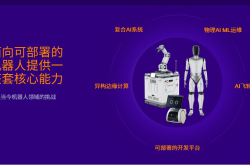Cash out HK$179 million! Xiaomi's "Second in Command" Reduces Holdings Again
![]() 06/17 2024
06/17 2024
![]() 705
705
Cash out HK$179 million in three days
Lin Bin, Vice Chairman and Executive Director of Xiaomi Group, cashed out a total of HK$179 million in three trading days, reducing his shareholding ratio from 9.25% to 9.17% (Class A shares).
Before this reduction, Lin Bin held 9.25% of Class A shares. After this reduction, he still holds 9.17% of Class A shares.
According to trading information from the Hong Kong Stock Exchange, Lin Bin sold 3.333 million shares on June 4th at an average price of HK$17.7704, cashing out HK$59.2287 million. On June 5th, he sold another 3.333 million shares at an average price of HK$17.8025, cashing out HK$59.3357 million. On June 6th, he sold 3.334 million shares at an average price of HK$18.0471, cashing out HK$60.17 million.
Why is there continuous cashing out?
This is not the first time Lin Bin has sold Xiaomi shares.
In August 2019, Lin Bin sold part of his Xiaomi equity, cashing out nearly HK$400 million. Facing questions, Lin Bin promised the market that he would not reduce his holdings further within the next 12 months.
In September 2020, as soon as the commitment period expired, Lin Bin sold 350 million Xiaomi shares, cashing out a total of about HK$8 billion (US$1 billion).
Now, in June 2024, it is the third sale, cashing out HK$179 million.
Large cash-outs from senior executives of listed companies often trigger market speculation, especially when the company involved is Xiaomi.
In early 2019, as billions of Xiaomi shares were about to be unlocked, Lei Jun and other controlling shareholders had just made a commitment to continue locking up their shares for another year. However, embarrassingly, investors saw such a scenario: the company was continuously repurchasing shares, while core executives were reducing their holdings and cashing out.
Facing questions, Xiaomi officially responded that the reduction in holdings was due to Lin Bin's personal financial needs, including charitable donations (in December 2021, Lin Bin donated 60 million Class B shares to Xiaomi Foundation). To maintain stability, Lin Bin voluntarily committed not to reduce his holdings within the next 12 months.
Just one year later, in September 2020, Lin Bin reduced his holdings again, and it was a massive sale.
At that time, Xiaomi's share price fell sharply after Lin Bin's large cash-out, and there were even voices in the market calling for him not to run away. Lin Bin re-committed that he would not sell his Xiaomi shares within five years.
However, this time he acted again, and the five-year period had not yet expired.
Some analysts interpreted that it is obviously unreasonable for 99% of Lin Bin's assets to be allocated in Xiaomi, and reducing his holdings can diversify assets and reduce risks. Moreover, it is a normal behavior for both Lei Jun and Lin Bin to obtain their own value from the capital market. In addition, even after multiple reductions, Lin Bin's shareholding ratio in Xiaomi remains relatively stable, with him still holding 9.17% of Class A shares.
The Origin of the "Second in Command"
As a teenager, Lin Bin was fascinated with programming, winning awards repeatedly in competitions. He was recommended to the Electronics Department of Sun Yat-sen University and later went to Drexel University in Philadelphia, USA, to complete his master's degree in computer science.
After graduation, Lin Bin chose Microsoft. From the Microsoft headquarters in the US to the Microsoft Asia Research Institute in China, he worked in technical fields such as multimedia, voice, digital ink, graphics, wireless communication, and internet applications. In 2003, invited by Kai-Fu Lee, Lin Bin moved from Microsoft China to Google China.
In January 2009, Lin Bin met Lei Jun through Google's business.
Xiaomi was founded in 20







